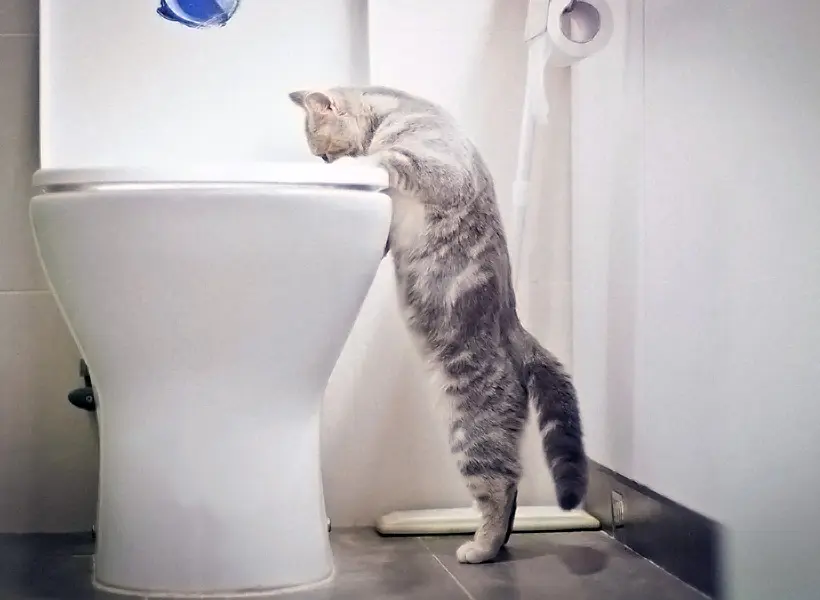Reasons Flushing Cat Poop Down Your Toilet May Cause Problems - Recommendations for Proper Handling
Reasons Flushing Cat Poop Down Your Toilet May Cause Problems - Recommendations for Proper Handling
Blog Article
We've discovered this great article on Can You Flush Cat Poop Down The Toilet? down the page on the internet and reckoned it made sense to write about it with you in this article.

Introduction
As feline proprietors, it's necessary to be mindful of just how we deal with our feline good friends' waste. While it might appear practical to purge pet cat poop down the toilet, this practice can have harmful consequences for both the setting and human health and wellness.
Ecological Impact
Flushing cat poop introduces harmful microorganisms and parasites right into the water, positioning a substantial risk to marine environments. These impurities can negatively influence aquatic life and compromise water quality.
Health Risks
In addition to ecological problems, flushing cat waste can likewise posture health threats to human beings. Cat feces might contain Toxoplasma gondii, a parasite that can trigger toxoplasmosis-- a potentially serious illness, specifically for pregnant females and people with damaged body immune systems.
Alternatives to Flushing
Luckily, there are more secure and much more liable methods to deal with cat poop. Consider the complying with options:
1. Scoop and Dispose in Trash
One of the most typical technique of taking care of feline poop is to scoop it into an eco-friendly bag and toss it in the garbage. Be sure to use a specialized trash scoop and deal with the waste quickly.
2. Use Biodegradable Litter
Choose naturally degradable cat clutter made from products such as corn or wheat. These litters are eco-friendly and can be securely thrown away in the trash.
3. Bury in the Yard
If you have a backyard, take into consideration hiding cat waste in a designated location away from vegetable yards and water resources. Make sure to dig deep enough to stop contamination of groundwater.
4. Install a Pet Waste Disposal System
Buy a family pet garbage disposal system specifically made for feline waste. These systems utilize enzymes to break down the waste, minimizing odor and environmental impact.
Final thought
Liable pet dog ownership expands beyond giving food and shelter-- it additionally includes correct waste management. By refraining from flushing feline poop down the bathroom and going with alternative disposal methods, we can lessen our ecological impact and protect human health and wellness.
Why You Should Never Flush Cat Poop Down the Toilet
A rose by any other name might smell as sweet, but not all poop is created equal. Toilets, and our sewage systems, are designed for human excrement, not animal waste. It might seem like it couldn’t hurt to toss cat feces into the loo, but it’s not a good idea to flush cat poop in the toilet.
First and foremost, assuming your cat uses a litter box, any waste is going to have litter on it. And even the smallest amount of litter can wreak havoc on plumbing.
Over time, small amounts build up, filling up your septic system. Most litter sold today is clumping; it is made from a type of clay that hardens when it gets wet. Ever tried to scrape old clumps from the bottom of a litter box? You know just how cement-hard it can get!
Now imagine just a small clump of that stuck in your pipes. A simple de-clogger like Drano isn’t going to cut it. And that means it’s going to cost you big time to fix it.
Parasitic Contamination
Believe it or not, your healthy kitty may be harboring a nasty parasite. Only cats excrete Toxoplasma in their feces. Yet it rarely causes serious health issues in the cats that are infected. Most people will be fine too if infected. Only pregnant women and people with compromised immune systems are at risk. (If you’ve ever heard how women who are expecting are excused from litter cleaning duty, Toxoplasma is why.)
But other animals may have a problem if infected with the parasite. And human water treatment systems aren’t designed to handle it. As a result, the systems don’t remove the parasite before discharging wastewater into local waterways. Fish, shellfish, and other marine life — otters in particular — are susceptible to toxoplasma. If exposed, most will end up with brain damage and many will die.
Depending on the species of fish, they may end up on someone’s fish hook and, ultimately on someone’s dinner plate. If that someone has a chronic illness, they’re at risk.
Skip the Toilet Training
We know there are folks out there who like to toilet train their cats. And we give them props, it takes a lot of work. But thanks to the toxoplasma, it’s not a good idea.

As a serious reader about How to Dispose of Cat Poop and Litter Without Plastic Bags, I imagined sharing that piece of content was a good thing. Sharing is caring. One never knows, you could be helping someone out. Many thanks for your time. Come back soon.
Click Here Report this page